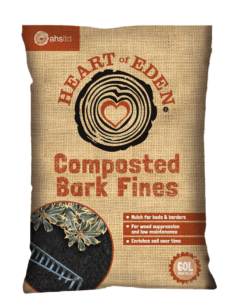Finding the Ideal Season for Applying Composted Bark Fines
Nov 29th 2023
Are you wondering when is the optimal time to apply composted bark fines to your garden? Well, look no further! In this article, we will explore the various seasons and their impact on the effectiveness of using composted bark fines. By understanding the benefits and considerations of each season, you’ll be able to make an informed decision on when to apply this valuable organic material to your soil. So grab a cup of tea, sit back, and let’s discover the ideal season for applying composted bark fines together!
What is the best season for applying composted bark fines?
If you’re a gardener or someone who loves taking care of their plants, you may have heard about the benefits of using composted bark fines. These finely shredded pieces of bark can work wonders for your soil and plants, enhancing their growth and overall health. However, you may be wondering when is the best time to apply composted bark fines. In this article, we will explore the different seasons and factors to consider when deciding on the perfect time for applying composted bark fines. So let’s dig in and find the ideal season for you!
Factors to consider
When it comes to choosing the best season for applying composted bark fines, there are a few key factors to consider. These factors can greatly impact the effectiveness of the composted bark fines and the overall health of your plants. Let’s take a closer look at these factors:
Soil moisture
One crucial factor to consider is the moisture level of your soil. Composted bark fines can help retain moisture in your soil, making it an excellent choice for areas that are prone to dryness.
Temperature
Temperature plays a significant role in the effectiveness of composted bark fines. In warmer seasons, such as spring and summer, the composted bark fines can help regulate soil temperature, preventing excessive heat buildup that may harm plant roots.
Plant growth cycle
Another important factor to consider is the growth cycle of your plants. Different plants have different needs at various stages of their growth. For instance, during spring and summer, many plants are in their active growth phase and may benefit greatly from the nutrient enrichment and moisture retention properties of composted bark fines.

Benefits of applying composted bark fines
Nutrient enrichment
One of the significant benefits of applying composted bark fines is the nutrient enrichment it provides to your soil. Composted bark fines contain organic matter that gradually breaks down, releasing essential nutrients such as nitrogen, phosphorus, and potassium. These nutrients are crucial for the healthy growth and development of plants. By adding composted bark fines to your soil, you provide a slow-release source of nutrients that can enhance plant growth and overall vitality.
Soil amendment
Composted bark fines are also excellent soil amendments. They improve the structure and texture of the soil, creating a more favorable environment for plant roots to grow and thrive. The fine particles of composted bark fines help loosen compacted soil, allowing better aeration and water penetration. Additionally, the organic matter in composted bark fines helps to improve the soil’s ability to retain nutrients, promoting long-term soil health.
Moisture retention
Another benefit of using composted bark fines is their ability to retain moisture in the soil. The shredded pieces of bark act as a protective layer, reducing evaporation and water loss. This can be particularly advantageous in dry climates or during periods of drought when water conservation is crucial. By applying composted bark fines, you can help ensure that your plants receive a consistent water supply, even during hot and dry weather.
Weed suppression
In addition to its nutrient enrichment and moisture retention properties, composted bark fines can also help suppress weeds. The layer of composted bark fines acts as a natural barrier, preventing weed seeds from germinating and competing with your plants for essential resources. This can significantly reduce the effort and time required for weed management in your garden, allowing you to focus on the growth and care of your plants.
Now that we understand the benefits of applying composted bark fines let’s explore the different seasons and their advantages and disadvantages.
Seasons for applying composted bark fines
Spring
Spring is often considered an ideal season for applying composted bark fines. During this time, plants are emerging from their dormant state and entering their active growth phase. By applying composted bark fines, you can provide the necessary nutrients and moisture retention properties to support their rapid growth. Additionally, the composted bark fines can help regulate soil temperature, protecting delicate roots from heat stress as temperatures rise. However, it is essential to consider the moisture level of your soil before applying composted bark fines in the spring, as excessive moisture retention may lead to root rot in waterlogged soils.
Summer
Summer is another season where applying composted bark fines can benefit your plants. The hot and dry weather during summer can cause water loss and nutrient deficiencies in the soil. The moisture retention properties of composted bark fines can help combat these challenges, ensuring that your plants receive a steady water supply. The nutrient enrichment properties of composted bark fines can also support healthy growth during this active phase of plant development.
Autumn
Autumn is a season of transition, where plants gradually prepare for winter and enter a dormant state. Applying composted bark fines in the autumn can provide a protective layer over the soil, helping to insulate plant roots and retain moisture as temperatures start to drop. The soil amendments and nutrient enrichment properties can also improve the soil’s health during the dormant period, supporting future plant growth. However, it’s important to apply composted bark fines early enough in the autumn to allow the soil to absorb the nutrients and for the bark fines to break down before winter arrives.
Winter
Winter is a season where the application of composted bark fines may have limited benefits. The cold temperatures and reduced plant growth make the nutrient enrichment and moisture retention properties less critical during this time. However, if you live in regions with mild winters, the insulation and weed suppression properties of composted bark fines can still be advantageous. Applying composted bark fines in winter can help protect your soil from erosion and minimize weed growth during the dormant period.







